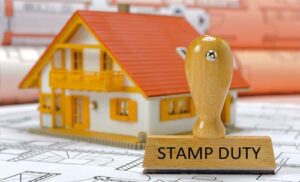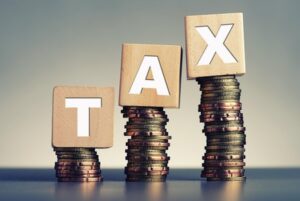Buying A Private Residential Property in Singapore – For Foreigners
For many foreigners, the idea of buying a private residential property in Singapore is an exciting one. With little or no restrictions on foreign ownership, it can be a great way to have a vacation home in the tropics but still keep your main residence in another country. For others, this idea will be mooted when they decide to relocate their family to Singapore for good.
But before you commit to making this investment abroad, there are some things that you should know about how to buy a house in Singapore as a foreigner. In this guide, we will go over what steps need to be taken and what fees need to be paid for purchasing property here!
Can foreigners buy a private residential property in Singapore?

In Singapore, foreigners are only allowed to own private residential property in Singapore. Public housing or commonly known as HDB is affordable housing extended only to Singapore Citizens and Singapore Permanent Residents.
For private residential property, there are two main categories:
- Non-landed private residential property
- Landed private residential property
With the exception of Sentosa, which is a specially zoned landed enclave, foreigners are only allowed to buy non-landed private residential property (condominiums).
In Singapore, as long as you are sound legally and financially, there are generally no restrictions to the ownership of a condominium. This is unlike some countries such as Thailand where they impose a foreigner ownership quota on condominiums.
You are also free to sell to anyone (regardless of citizenship status) should you choose to divest this property investment in the future.
How much does it cost to buy a private residential property in Singapore?

Besides the cost of the property, there are taxes and fees involved which we will address in this section.
As of 2022, the Singapore government has introduced new cooling measures to tackle the red hot property market. This involved raising the stamp duties payable when buying a property.
Stamp Duties For Buying

Besides the value of the property, this is the next biggest cost when it comes to buying the property.
As a foreigner(individual), you are liable to pay the following stamp duties upon buying:
Buyer Stamp Duty:
- 1% on the first $180,000
- 2% on the next $180,000
- 3% on the next $640,000
- 4% on balance amount above $1,000,000
Additional Buyer Stamp Duty:
- 30% on the property purchase price
If you choose the buy the private residential property under an entity (company or association), the additional buyer stamp duty will be taxed at 35%.
Other Fees To Note
Buying involves engaging a lawyer for conveyancing. Depending on the case complexity and value of the property, the legal fees payable will vary. In most cases, a budget of $3,000 to $4,000 should suffice.
If you engage an agent to help with the property search and purchase, you may also be liable to pay agency fees. In Singapore, the common practice for private residential property is the buyer’s representing agent will co-broke and share the commission with the seller’s representing agent. That means the buyer (you) do not have to pay agency fees out of your own pocket.
However, do note that while this is a common practice, this is not a rule that is enforced throughout. So it will be best to seek clarity with the agent you intend to engage.
What are the procedures involved in buying a property?

If there are no special arrangements, a private property transaction typically takes about ten to twelve weeks to complete.
Once your negotiation for a property is successful, here are the typical flow of events:
- 1% option fee – quite a standard practice, 1% of the agreed property purchase price is paid to the seller in exchange for the option to purchase agreement. This 1% option fee will be forfeited by the seller if the buyer chooses not to proceed with the purchase after the given cooling period.
- 4% option fee – most option to purchase agreement expires in 14 calendar days (unless otherwise agreed). During this period, the buyer ought to have their financials sorted and confirm they will proceed with the purchase. Once confirmed, the buyer will issue a 4% payment (to be held in trust by the conveyancing lawyer) and sign the option to purchase agreement. After this point, the buyer will be legally bound to complete the sale of the property.
- After this is done, there is generally no action required by the buyer. The conveyancing lawyers from both sides will liaise and work towards the completion of the property sale. The lawyer will advise the buyer on the payment schedule and timeline of events.
Other Important Things To Note
Seller Stamp Duty

While you will be free to sell the property to anyone and at any time after you take ownership of the property, do take note that there is a Seller’s Stamp Duty imposed on anyone who wishes to dispose of their property within a 3 year holding period.
- Up to 1 year – 12%
- More than 1 year and up to 2 years – 8%
- More than 2 years and up to 3 years – 4%
- Beyond 3 years – no SSD payable
This seller stamp duty is imposed on the selling price of the property.
Tax on Disposal of Property

There is no capital gains tax imposed on your sale of the property. Unless you are deemed to be in the business of trading properties. Which in that case, the gains will be classified as revenue in nature.
There is also no inheritance tax applicable in Singapore as of the writing of this article.
Property Tax
This is a tax on the property assessed value. Payable yearly, the applicable tax rates ranges up to 20% depending on whether the property is owner-occupied or non-owner occupied. In other words, you are liable to pay higher property tax if the property is bought for investment purposes.
Income Tax
If the property is rented out, the rental collected is considered as income to you. As such, depending on the rental collected yearly, you may be liable to pay tax based on personal income tax rates for foreigners.
Seeking to invest in a property in Singapore? Our experienced team will be able to craft a suitable roadmap for you. Come talk to us today!
